Bridge is the ultimate trick-taking card game, easily the greatest source of enjoyment that four people can have with a pack of cards.
Bridge is a sport: the World Bridge Federation is recognised by the International Olympic Committee. Just like every sport, Bridge offers enormous benefits to its players.
It is enjoyed by tens of millions of people throughout the world – more so than any other card game. In social circles it is considered the card game. Whether you play casually among friends or seriously in clubs and tournaments, you will find it to be fascinating, challenging and enjoyable.
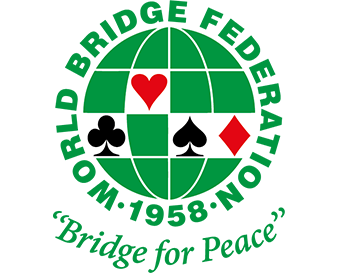
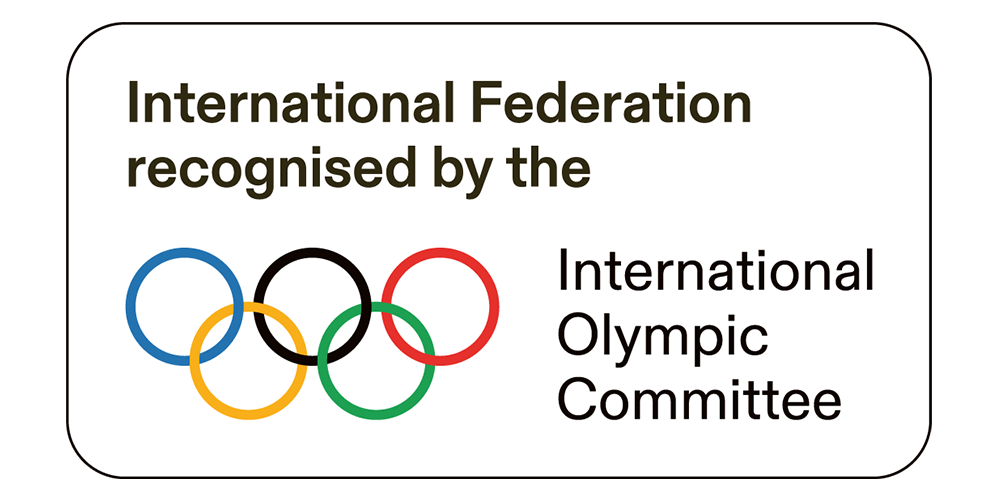

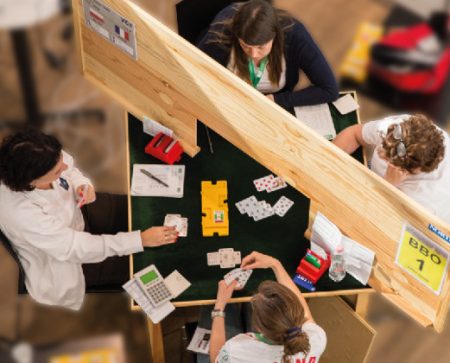 The four players form two partnerships, taking the points of the compass. North plays with South and East with West. Each player receives thirteen cards (your hand) which should be sorted into suits: spades, hearts, diamonds and clubs.
The four players form two partnerships, taking the points of the compass. North plays with South and East with West. Each player receives thirteen cards (your hand) which should be sorted into suits: spades, hearts, diamonds and clubs.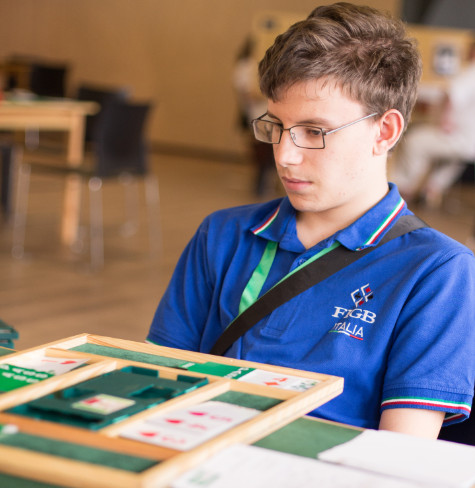 Having shuffled the pack the cards are dealt clockwise, one at a time until each player has 13 cards, after which the bidding phase begins.
Having shuffled the pack the cards are dealt clockwise, one at a time until each player has 13 cards, after which the bidding phase begins. A play consists of taking a card from your hand and placing it face up in the centre of the table. Four cards so played, one from each player in clockwise rotation, constitute a trick.
A play consists of taking a card from your hand and placing it face up in the centre of the table. Four cards so played, one from each player in clockwise rotation, constitute a trick. Dr. Christopher Shaw researched the impact that learning to play Bridge would have on elementary students. The researcher from Carlinville (Illinois) found out that kids who learn to play Bridge have an
Dr. Christopher Shaw researched the impact that learning to play Bridge would have on elementary students. The researcher from Carlinville (Illinois) found out that kids who learn to play Bridge have an 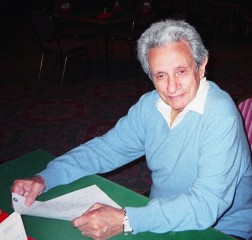 A study published in 2003 by Verghese in the New England Journal of Medicine indicated that senior citizens who play a board game may have a lower risk of dementia. Generally it is considered that participation in leisure activities has been associated with a lower risk of dementia.
A study published in 2003 by Verghese in the New England Journal of Medicine indicated that senior citizens who play a board game may have a lower risk of dementia. Generally it is considered that participation in leisure activities has been associated with a lower risk of dementia.